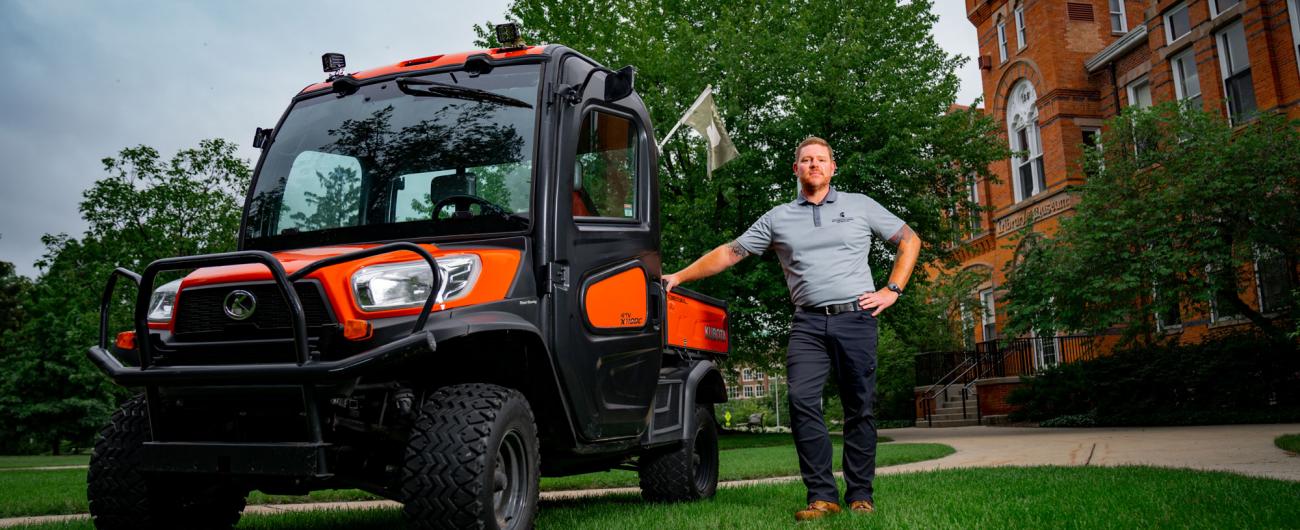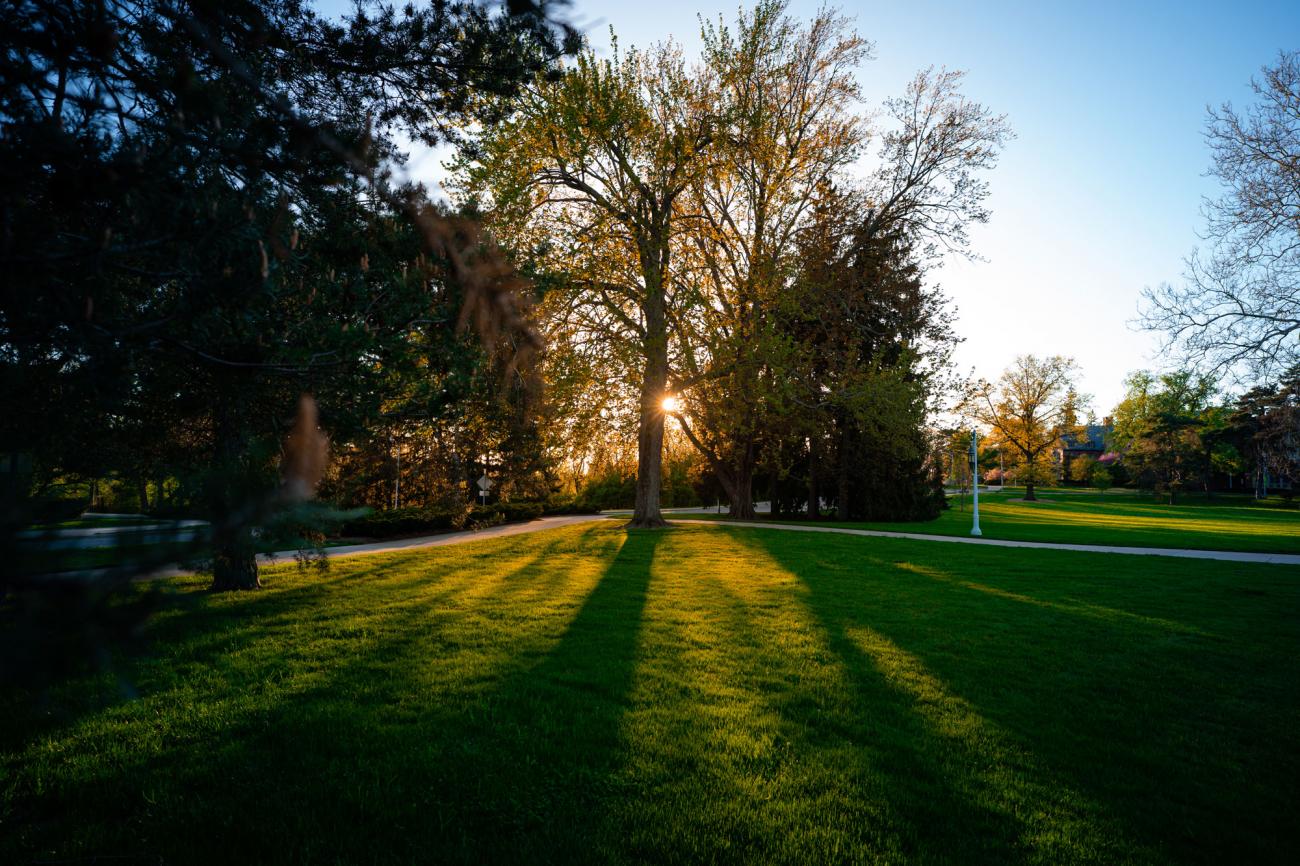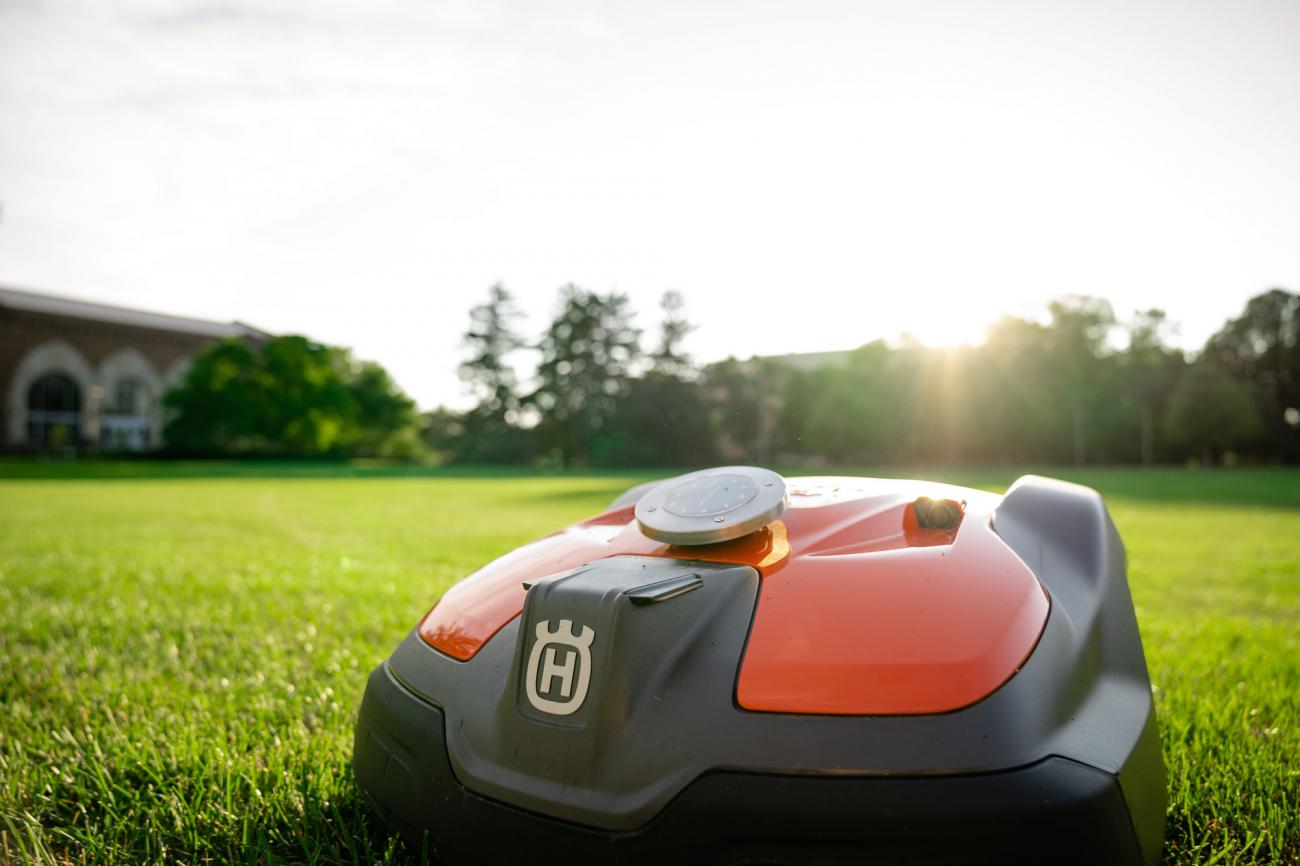Get to know the IPF team: Josh Ridner

Danielle Fowler
July 13, 2021
Josh Ridner, originally from a small town in Iowa, has made Michigan his home. He's even had a hand in creating it.
"I still remember the first tree I planted many years ago at 18," said Ridner. "I could drive around anywhere in this area and see trees I've planted; seeing the size of some of them now is pretty amazing."
Ridner is an operations supervisor for Landscape Services at Infrastructure Planning and Facilities. He oversees a 500-acre zone of MSU's campus and supervises up to 20 people in peak landscaping season doing trimming, mowing, edging, litter collection, fertilization, and more.
His path to MSU was an interesting journey, working at various landscaping companies learning all aspects of the business from turf maintenance to snow removal. It was a request for a winter's day off that set him on the path to MSU.
"Even though we had coverage and there was no snow, [the request] wasn't well received," said Ridner. When he got back the next week, his new assignment was to split wood for 30 hours a week.
His wife found a Craigslist advertisement for a Labor 3 position at MSU. While he didn't land that job, he did accept an Equipment Operator 1 position at Landscape Services and he's been on campus ever since.

Working in landscaping at MSU is much different than in the private sector, said Ridner. While the private sector can be a cutthroat business competing for customers, "in the Big Ten you're working together to solve problems, which is so much different. It's been really fun learning from other people and them learning from us."
One of the areas MSU is innovating in, land maintenance and environmental stewardship, is starting the transition away from noisy, polluting gas-powered machinery. The goal is to turn areas of campus into "green zones" where routine grounds maintenance is performed with low-noise, zero-emission tools like battery-operated string trimmers and even autonomous lawnmower robots.
Areas of MSU's campus will become some of the first certified green zones in Michigan.
Josh Ridner, IPF Landscape ServicesIn the Big Ten you're working together to solve problems, which is so much different. It's been really fun learning from other people and them learning from us.
"[Green zoning] might be mandated one day, so we thought 'let's get ahead of the curve,'" said Ridner. "You can't just decide we're doing everything the way we used to 20 years ago. You've got to keep moving forward. As the technology gets better and more effective, more people are embracing it."
These changes also offer great opportunities to collaborate with students at MSU. When the first autonomous mowers were purchased for the university, IPF met with College of Engineering robotics students who completed a project focused on the mobile robots.

"The reason we're here is because the students are here," he says. "There's no other reason. Having that involvement with them and keeping things relevant as far as apps and technology is putting their work in the real world and putting the actual tools in their hands."
IPF can also step in and lend a hand, like applying for the Project Wingspan grant to help the College of Natural Science’s Plant Biology Department and the student Fisheries and Wildlife Club reclaim a part of MSU's campus with native plants and pollinators.
Though Landscape Services may not be the first thing Spartans think of when they think of MSU, Ridner knows that good stewardship, planning and maintenance is a key part of creating a lasting experience.
"Some people might think turf maintenance and gardening are trivial, but so many people enjoy this landscape," says Ridner. "It's close to their hearts. It's important."
